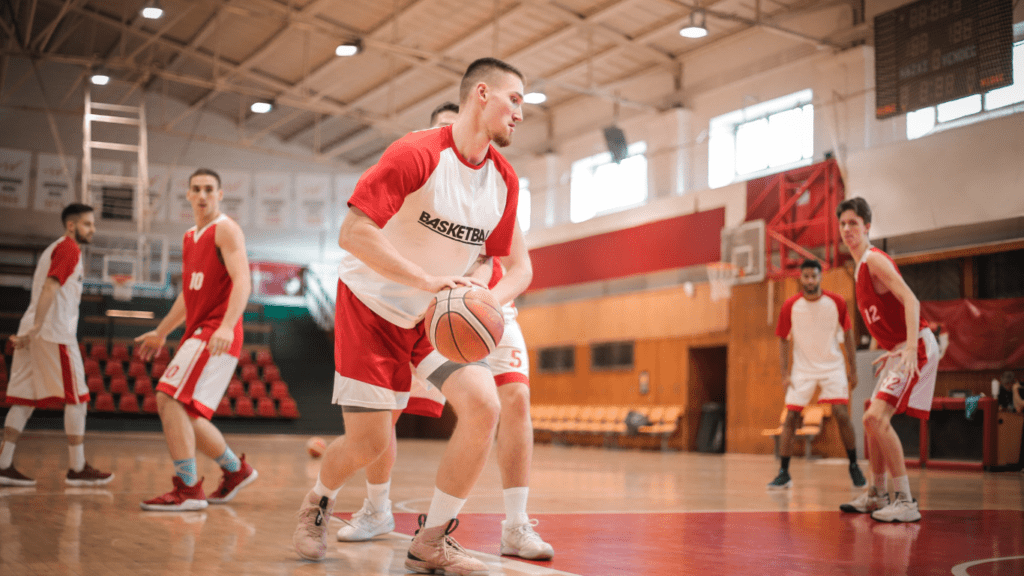Building muscle memory is a game changer for anyone looking to improve their skills, whether in sports, music, or even everyday tasks. It’s that incredible ability of our bodies to remember movements and techniques, making them feel almost automatic over time.
I’ve experienced firsthand how mastering this concept can lead to significant improvements in performance and efficiency. In this article, I’ll share effective techniques that truly work for building muscle memory.
From focused repetition to visualization strategies, these methods will help you train your body and mind to perform tasks with greater ease and precision. Let’s dive into the science and practical tips that can transform your approach to learning and mastering new skills.
Understanding Muscle Memory
Muscle memory refers to the process by which our bodies learn and retain movement patterns. This automaticity allows me to perform complex tasks with minimal conscious effort after sufficient practice.
Definition of Muscle Memory
Muscle memory involves the brain and neuromuscular system’s ability to store and recall movement patterns. When I practice a skill repeatedly, the brain establishes neural pathways that facilitate efficient execution of that skill in future attempts.
This process enables my body to perform actions like playing an instrument or executing a sports technique with enhanced speed and precision.
The Science Behind Muscle Memory
The science behind muscle memory includes several physiological processes. My brain communicates with muscles through motor neurons, forming connections that strengthen with consistent practice.
Repeated actions lead to the myelination of nerve pathways, allowing signals to travel faster. Studies show that practicing a skill for approximately 20 hours results in noticeable improvements, demonstrating the power of focused repetition.
Additionally, research indicates that muscle memory persists even after extended periods of inactivity, underscoring its lasting impact on skill retention.
Key Techniques for Building Muscle Memory
I focus on several key techniques to effectively build muscle memory, enhancing skill retention and execution. These methods include consistent practice, repetition with variability, and visualization techniques.
Consistent Practice
I prioritize consistent practice, dedicating time each week to honing skills. Regular engagement with the task reinforces neural pathways, making movements feel automatic. Research suggests practicing at least 20 hours spreads out over several weeks or months for optimal results.
This approach provides a stable foundation for building muscle memory.
Repetition and Variability
I find that repetition combined with variability enhances learning. While repetition solidifies movement patterns, introducing variations challenges my skills and promotes flexibility. For instance, when learning a sport, I practice under different conditions or with varying tempos.
This strategy prevents plateauing and encourages my body to adapt to new scenarios while solidifying the skill.
Visualization Techniques
I utilize visualization techniques to complement physical practice effectively. I mentally rehearse the movements, visualizing every detail and rather than just observing them. Studies indicate that this mental practice activates similar brain regions as physical performance.
Engaging in visualization exercises can improve muscle memory and overall performance, reinforcing learning even when not physically rehearsing skills.
Role of Nutrition in Muscle Memory
Nutrition plays a crucial role in building and maintaining muscle memory. Proper dietary choices can enhance physical performance and recovery, enabling more effective muscle training.
Importance of Protein
Protein is vital for muscle growth and repair. When I focus on adequate protein intake, my body has the necessary building blocks—amino acids—for repairing muscles after workouts. For optimal results, I aim for a daily protein intake of 1.2 to 2.2 grams per kilogram of body weight, depending on my activity level.
Foods rich in protein, such as chicken, fish, legumes, and dairy products, contribute to muscle development. Research shows that consuming protein immediately after exercise helps stimulate muscle protein synthesis, making it a key element in developing strong muscle memory.
Hydration and Recovery
Hydration significantly impacts muscle recovery and performance. Staying well-hydrated ensures that my muscles receive the nutrients they need for optimal function. Dehydration can lead to fatigue, decreased performance, and increased risk of injury.
I aim to drink at least 3 liters of water daily, especially during strenuous activities. Furthermore, adequate hydration supports cognitive function, which is essential when practicing movements. Alongside hydration, post-workout recovery nutrition—such as combining carbohydrates with protein—facilitates quick recovery and prepares my muscles for subsequent training sessions.
The Impact of Sleep on Muscle Memory
Sleep plays a vital role in building and maintaining muscle memory. Quality sleep enhances recovery and allows for optimal brain function, both crucial for learning and skill retention.
Sleep Cycles and Muscle Recovery
Sleep consists of multiple cycles that include REM (rapid eye movement) and non-REM stages. Each cycle serves a specific function in muscle recovery and memory consolidation. During non-REM sleep, the body undergoes physical repair, releasing growth hormone, which aids in muscle growth and repair.
The REM stage supports cognitive functions, such as memory consolidation. Research shows that obtaining 7-9 hours of quality sleep per night significantly improves physical performance and learning retention. Disruptions in sleep patterns can hinder muscle recovery and limit advancements in skill acquisition.
Tips for Better Sleep Quality
- Maintain a regular sleep schedule: Go to bed and wake up at the same time daily to regulate your body’s internal clock.
- Create a calming bedtime routine: Engage in relaxing activities, such as reading or meditation, to signal your body that it’s time to wind down.
- Limit exposure to screens: Avoid screens at least an hour before bed to reduce blue light exposure, which interferes with melatonin production.
- Optimize your sleep environment: Ensure your bedroom is dark, quiet, and cool. Consider blackout curtains and white noise machines to enhance comfort.
- Limit caffeine and heavy meals: Avoid caffeine within six hours of bedtime and opt for light snacks if hungry before sleep.
Implementing these strategies promotes better sleep quality, fostering improved muscle memory and overall performance.




